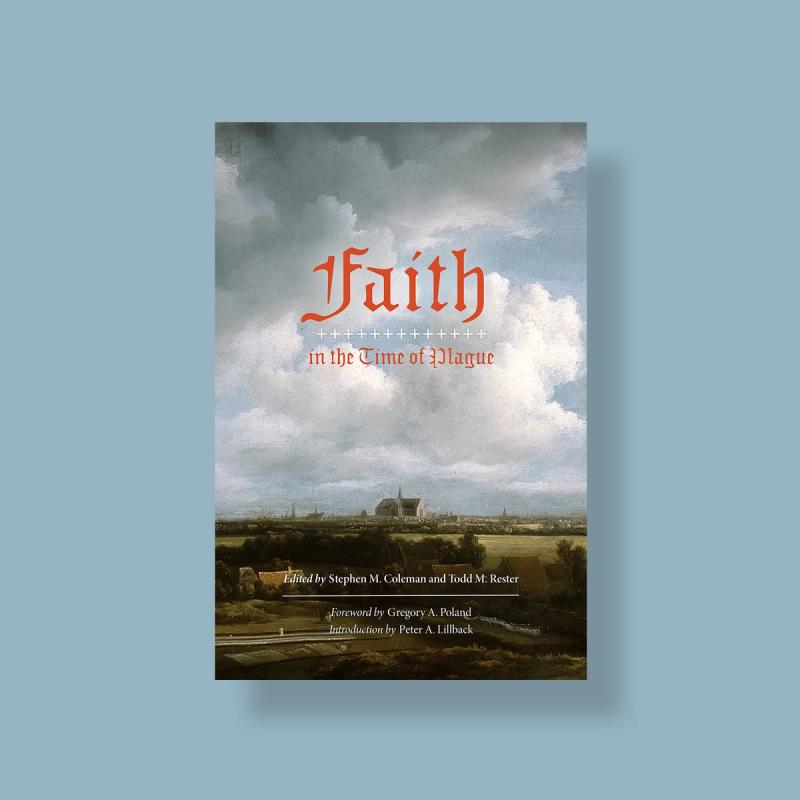As historians look at history, they seek to discern the forces or people that have shaped the past. My own historical convictions have led me to focus on people as the main actors on the stage of history, not economic force or ideologies per se. Yet, there is definitely a place to evaluate the impact of such forces as these, or pandemic disease. One thinks in this regard of the impact of a pestilence on the forces of the Athenian Empire during the early stages of the Peloponnesian War with Sparta and her allies, a war made famous by the Greek historian Thucydides and which lasted from 431 to 404 bc. The loss of the Athenian general Pericles to this plague may well have affected Athenian fortunes in that war.
Of course, the church has not been unaffected by various epidemics and pandemics down through the years. In Faith in the Time of Plague: Selected Writings from the Reformation and Post-Reformation, Stephen Coleman and Todd Rester have collected texts ranging from Martin Luther to John Rawlet, a relatively unknown English author active during the Restoration, offering a rich resource of primary sources from our Protestant tradition as to how our spiritual forebears dealt with pandemics and plagues. Here are texts from French Reformed authors Theodore Beza and André Rivet, the Italian Reformer Jerome Zanchi, German Reformers such as Luther, Huldrych Zwingli, Ludwig Lavater, and Zacharias Ursinus, Dutch Reformed figures Gisbertus Voetius and Johannes Hoornbeeck, and two English writers, George Abbot and Rawlet. These texts, most of which have been expertly translated by Rester, deal with such key issues as to whether or not it is appropriate to seek to flee from places being impacted by epidemic or pandemic disease, divine sovereignty in such difficult times, and how to face death.
These texts come from a slice of Christian history, albeit a very important slice, namely, the era of the Reformation and its immediate aftermath in the seventeenth century. Of course, in addition to employing Scripture, these texts draw upon a rich tradition of reflection upon such matters. Coleman and Rester include one portion of that tradition, the sermon On Mortality by the third-century African bishop Cyprian (313–328). A number of authors in this collection clearly knew this work. Rivet called it “exquisite” (35), while Voetius termed it a “golden sermon” (p.81). And to Hoornbeeck, it was “an outstanding and timeless sermon” (128). Cyprian preached this homily, which mainly deals with the Christian facing death, in the wake of a pandemic that ravaged the Roman Empire for two decades between 250 and 270. At one point, possibly as many as 5,000 people were dying every day in Rome, including two emperors, Hostilian in 251 and Claudius II Gothicus in 270. From our vantage-point it is difficult to determine the nature of the plague, but from what Cyprian tells us of the various symptoms, this plague may well have been a viral hemorrhagic fever like Ebola.
The inclusion of Cyprian’s sermon is a great reminder of the way that our Reformed forbears saw themselves as heirs of a great tradition of Christian thought that reached back to late antiquity and how they drew upon that tradition for succor in their day. The past couple of years have been a difficult period—even a grim one—for Evangelicals in North America. In some ways, this situation has been exacerbated by the fact that far too many Evangelicals have no knowledge of how their Christian forebears faced similar events. May this splendid collection of resources be used in part to rectify this sad situation.
Michael A. G. Haykin is chair and professor of church history at The Southern Baptist Theological Seminary, Louisville, Kentucky.



